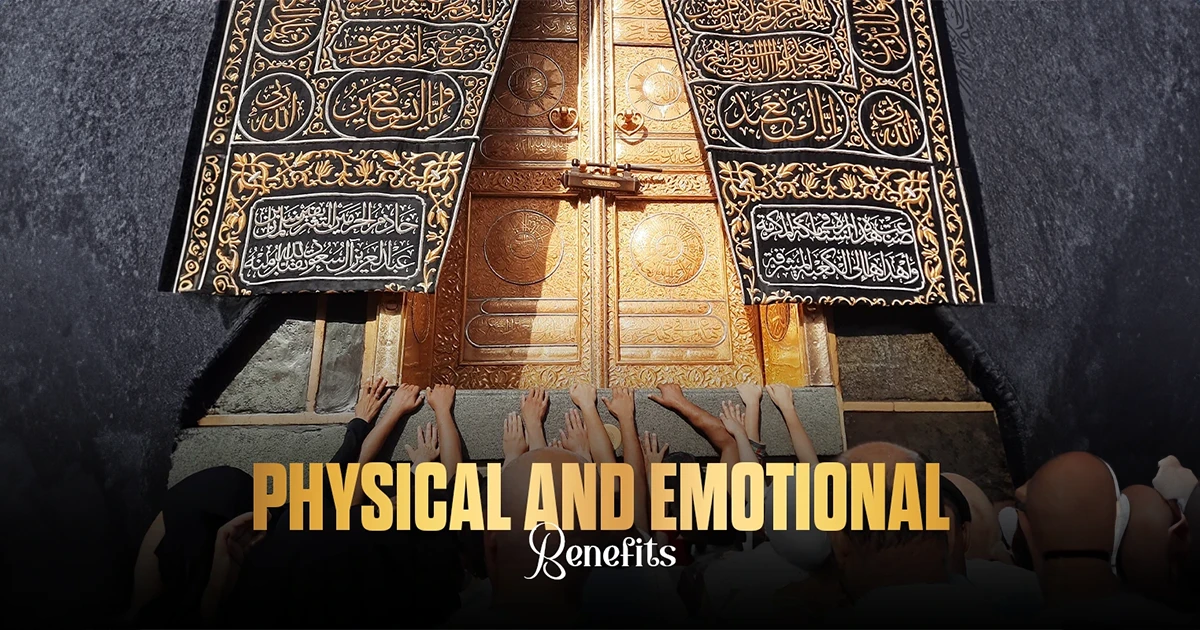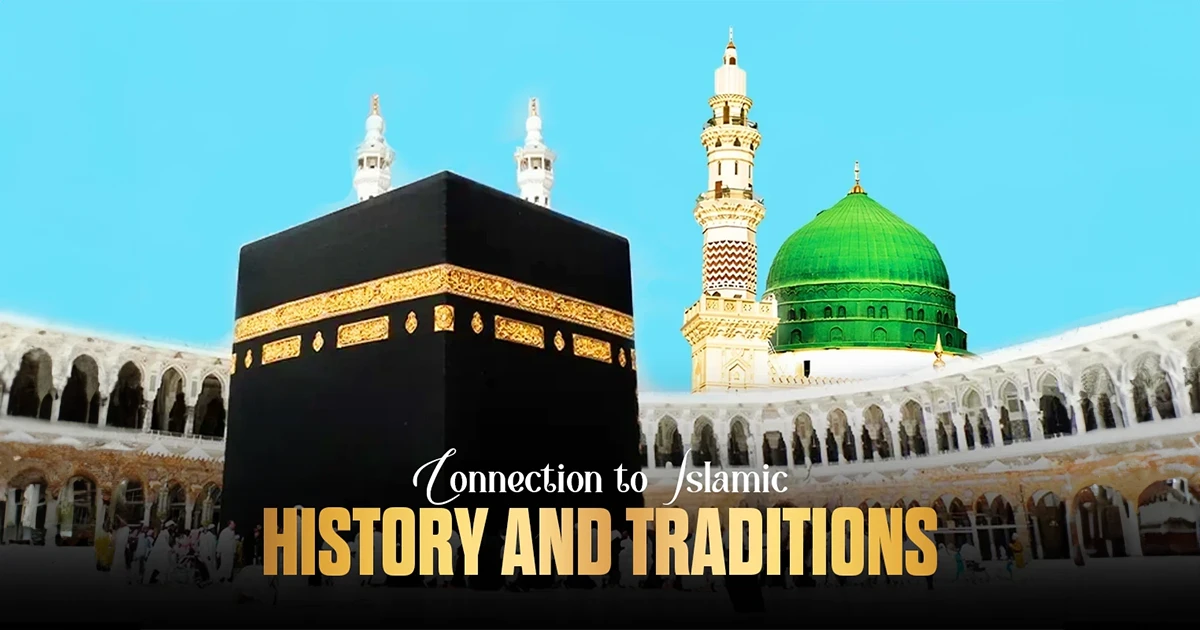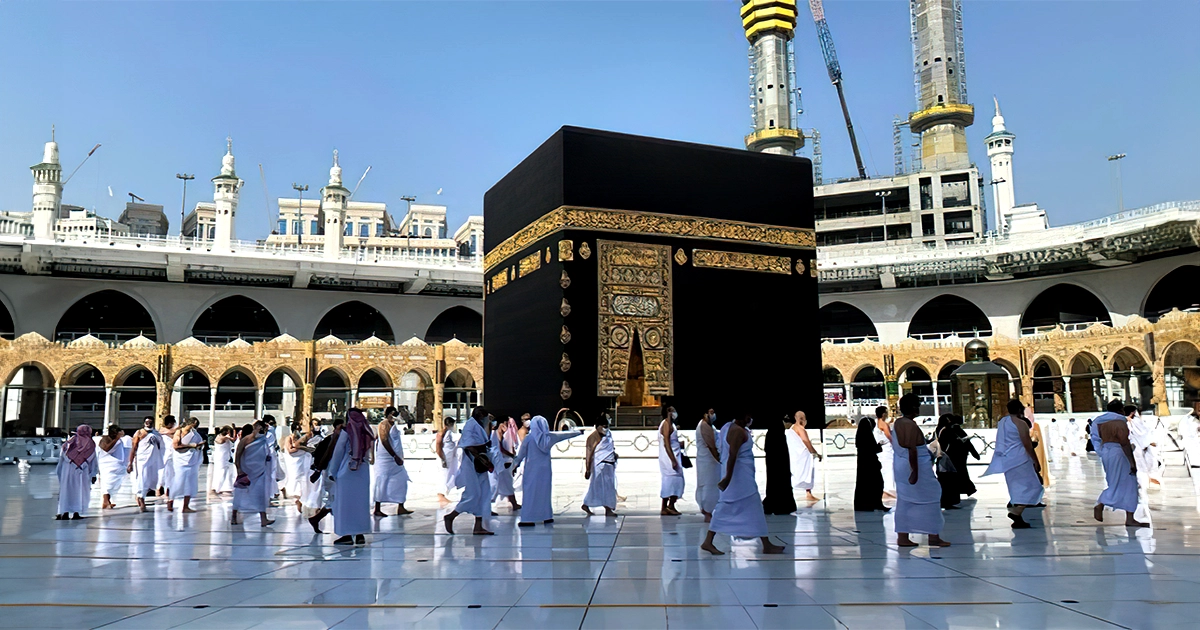The Benefits and Rewards
Hajj and Umrah are religious pilgrimages to Makkah, Saudi Arabia. One of the Five Pillars of Islam is Hajj and is compulsory for every Muslim who can financially afford it and for those who are physically fit. while Umrah is not compulsory but highly encouraged. The main differences between them are their timing and the rituals involved.
Hajj takes place between the 8th to the 12th of the Islamic month of Dhul-Hijjah. It consists of detailed rituals that are carried out over several days and is a requirement for every Muslim to complete at least once in their lifetime. In contrast, Umrah is a journey that can be performed any time of the year.
Both pilgrimages aim to complete the religious duty and strengthen the connection with Allah, contributing to personal growth.
Table of Contents
The Spiritual Benefits of Hajj and Umrah

- Spiritual Cleansing and Forgiveness: One of the key benefits of Hajj and Umrah is its cleanse the soul and heart. Muslims get a chance to repent for their sins, and ask for Allah’s mercy. The Prophet Muhammad (PBUH) said, “Whoever performs Hajj and does not commit any crime or wrongdoing, he will return like the day his mother gave birth to him” (Sahih al-Bukhari). The pilgrimage allows muslims to erase their wrongdoing and start fresh with a clean soul.
- Renewed Faith and Commitment: The journey of Hajj and Umrah, helps Muslims to strengthen their Faith on a deeper level. The rituals of Tawaf (circulation around the Kaaba), Sa’i(walk between the hills of Safa and Marwah), and standing on the plains of Arafah is regarded as the act of worship that draws pilgrims closer to Allah. Pilgrims return home with the new aims and pure intention, take resolution to spend their life on righteous path and to follow the religion.
- Increased Taqwa (God-Consciousness): One of the aims of performing rituals of Hajj and umrah is to promote Taqwa (Awareness of God). Pilgrims think about deeds, ask for forgiveness and try to be a better one.
- Social and Communal Benefits
- Creating Lifelong Friendships and Bonds: During the Journey of Hajj and Umrah, pilgrims develop deep and everlasting relationships with others. The experience of completing the holy journey together builds companionship and friendship among Muslims across the world. The pilgrims return back with spiritual experience along with a new found relationship.
- Sense of Unity and Brotherhood: The rituals of Hajj and Umrah bring Muslin together from across the world. Pilgrims indulge in devotion and submission to Allah irrespective of their standard, nationality , race and wealth. This symbolizes the unity of Muslim Ummah.
- A Global Experience: The pilgrimage creates a chance for Muslims across the world to meet peoples from different backgrounds. This creates a deep sense of respect, understanding and unity among the Ummah.
Physical and Emotional Benefits

- The Physical Endurance Required for Hajj and Umrah: The rituals of hajj and Umrah is also about physical challenges. The pilgrims perform tawaf and sai where they engage in long walks. Moreover the rituals of Hajj include night stay at Mina and Muzdalifah which brings tiredness among the pilgrims. These rituals build the durability, discipline and determination among the pilgrims that also help them in daily life.
- Building Patience and Emotional Resilience: Performing Umrah and hajj is emotionally challenging. Maintaining the large crowd, dealing with discomfort and restoring coolness during highly emotional moments needs patience. The pain during the journey makes the pilgrims stronger and strengthens their ability to deal with any hard situation in life.
- Detachment from Materialism: The simplicity of Ihram clothing, which removes discrimination on the basis of wealth and social status, inspires pilgrims to focus on their spiritual wealth rather than material possessions. By adopting a simple lifestyle and engaging in worship, results in creating a sense of detachment from materialistic world. It helps the pilgrims to experience the joy of life and create a deep connection with Allah.
Rewards in the Hereafter

- The Promise of Paradise for Hajj Mabrur: Completing the Hajj with devotion and sincerity results in great reward that is entry to paradise. Prophet Muhammad (PBUH) said “The reward of Hajj Mabrur (an accepted Hajj) is nothing but Paradise” (Sahih Bukhari). This reward makes Hajj as one of the most advantageous forms of worship.
- Increased Status and Rank in the Eyes of Allah: The pilgrimage to Hajj and Umrah increases the pilgrims rank in the eye of Allah. Each and every act of worship, contribution to any good deeds, and the pain and challenges pilgrims endure during these journeys, all recognized by Allah. The rewards are given in this world as well as the afterlife.
- Continuous Rewards Even After the Pilgrimage: The rewards of Hajj and Umrah do not end after the pilgrims return home. Instead it’s the beginning as the pilgrims engage in various acts of worship, increase their good deeds and charity, believing to strengthen their faith. This act provides great rewards even after the sacred journey ended.
Connection to Islamic History and Traditions

- Following the Legacy of Prophet Ibrahim and Prophet Muhammad : Hajj and Umrah had a history dating back to the era of Prophet Ibrahim (A.S), who performed several rituals that are still observed. This provides Muslims with an opportunity to remember the sacrifices done by Prophet Ibrahim(A.S) , his wife Hagar(A,S), and their son Ismail(A.S), alongside the legacy of Prophet Muhammad (PBUH).
- Understanding the Significance of Sacred Sites in Mecca and Medina: The holy journey to the City of Makkah and Madinah creates a deep sense of spirituality. The holy sites in Makkah and Madinah such as Cave of Hira, Mount of Arafah, Jamarat, Masjid Quba or Mount Uhud are deeply connected to the history of Islam. Each place has its own history, contributions and spiritual connection in Islam. Visiting these sites during the pilgrimage helps the pilgrims to deepen their knowledge and strengthen their faith.
Conclusion
Hajj and Umrah are journeys that provide Muslims spiritual, emotional, and social advantages. The pilgrims, along with cleansing sins, deepen faith but also develop connections with other Muslims and hold the promise of Paradise. The benefits of these sacred journeys involved creating transformative experiences that influence a believer’s life.
 Kolkata, West Bengal
Kolkata, West Bengal


Leave a Reply